Travel
Safety In Africa: Tips For Staying Safe
For many, just the thought of travelling to Africa is enough to send them scurrying under their bed with fear.
We’ve all heard the horror stories about crime and diseases, so most people’s concerns about visiting are usually centered around safety in Africa.
Africa is a daunting and challenging place to travel to. However, it is one of the most rewarding travel experiences you will ever have.
There is no place on earth like Africa, and if you can tame those monsters that hide in your shadows, then it is so worth you investing time and money travelling on this unique and vast continent.
In this guide, we share our top safety tips for traveling in Africa, so you can feel more at ease about visiting.
Is Africa Safe?
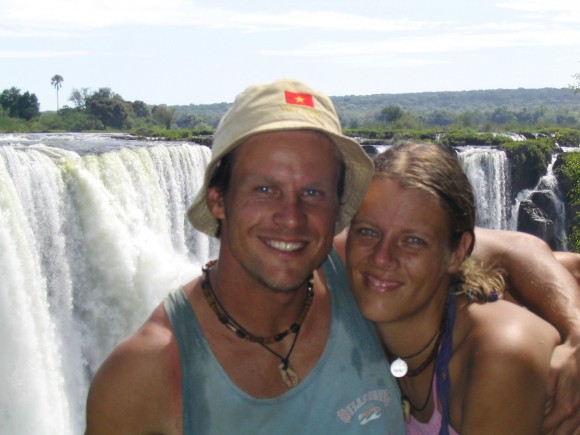
Since Africa is a continent, you cannot simply say yes or no with regards to safety.
Some of the safest countries to visit in Africa include Mauritius, Botswana, Rwanda, Seychelles, Kenya, Tanzania, Uganda, Namibia, and Zambia.
These destinations are known for their welcoming hospitality, stunning landscapes, and rich cultural experiences.
Malawi is also safe in terms of crime, and is often described as The Warm Heart of Africa, though there are malaria zones and other diseases to watch out for there.
On the other hand, certain areas may pose higher safety risks due to crime and civil unrest.
Some cities in Zambia, such as Lusaka and Livingstone, have a higher crime rate.
Travelers are advised to exercise increased caution when visiting some regions such as Sudan, South Sudan, and Somalia, as well as some cities in South Africa such as Johannesburg.
There are particular areas where crime is higher, such as the Townships, or slums, which are areas that tourists wouldn’t go anyway.
Stick to the main touristy areas and tourist attractions, and you shouldn’t run into any problems.
Also, check where they rank on the Global Peace Index, to get a feel for how bad crime is.
Global Peace Index Scores
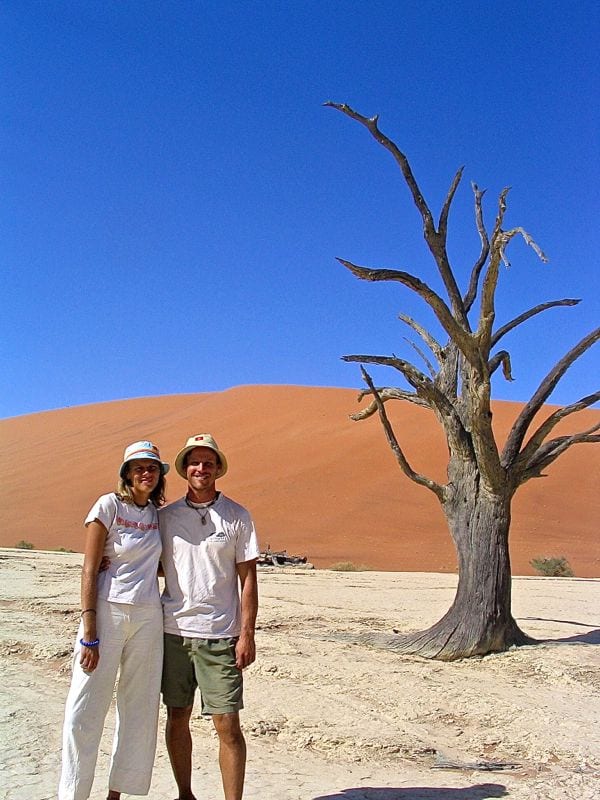
To help you understand which countries are considered safe, here are the gpi score for some of the most visited countries in Africa.
For context, the Global Peace Index (GPI) scores work by measuring and ranking the relative peacefulness of nations and regions based on various indicators such as levels of violence, crime rates, military expenditures, terrorism, and political stability.
The scores are calculated using a wide range of data, including surveys, qualitative analysis, and expert assessments, and offer a guide to the overall assessment of peace and security.
The lower scores indicate a higher level of peace and stability.
The following scores are as of January 2024. The lowest score is 1.1, and the highest is 3.4.
| Country | GPI Score |
|---|---|
| Angola | 2.02 |
| Botswana | 1.762 |
| Central African Republic | 2.934 |
| Republic of Congo | 2.21 |
| Equatorial Guinea | 2.013 |
| Gambia | 1.888 |
| Ghana | 1.799 |
| Kenya | 2.254 |
| Libya | 2.605 |
| Mali | 2.963 |
| Malawi | 1.97 |
| Mauritius | 1.546 |
| Namibia | 1.859 |
| Nigeria | 2.713 |
| Rwanda | 2.051 |
| Senegal | 1.829 |
| Sierra Leone | 1.792 |
| South Africa | 2.405 |
| Tanzania | 2.058 |
| Tunisia | 2.01 |
| Uganda | 2.3 |
| Zambia | 1.898 |
Safety Tips For Traveling in Africa
To make sure you don’t run into the wrong area, or attract any unwanted attention, be sure to follow these words of advice about safety in Africa…
Behaviour / Appearance Safety Tips
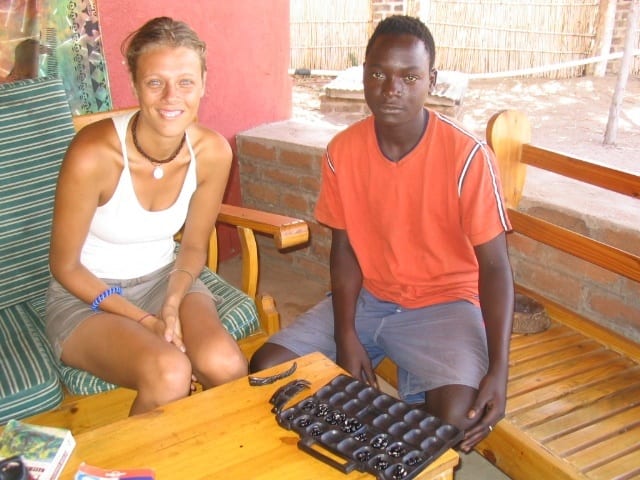
As with any place you visit, act confidently and always be friendly. You don’t want to invite trouble your way. Africans are really friendly, there is no reason you can’t return their beaming smiles and chat with them.
Do not wear any flashy jewelry. Look like a budget traveller. Never talk about money and how much you have. Try not to carry a lot of money on you and keep it well hidden.
Ladies, there will be many local men that will want to chat you up, these are really young, cool, good looking men. It is so easy to be charmed by them. Just be careful.
We found the locals really aggressive in Tanzania. They will crowd you and pull at you in order to get you to buy from them etc.
Just be really firm and confident with them from the word go. Avoid conversation and eye contact. Just a curt nod of the head and move on.
2. Destination Safety Tips
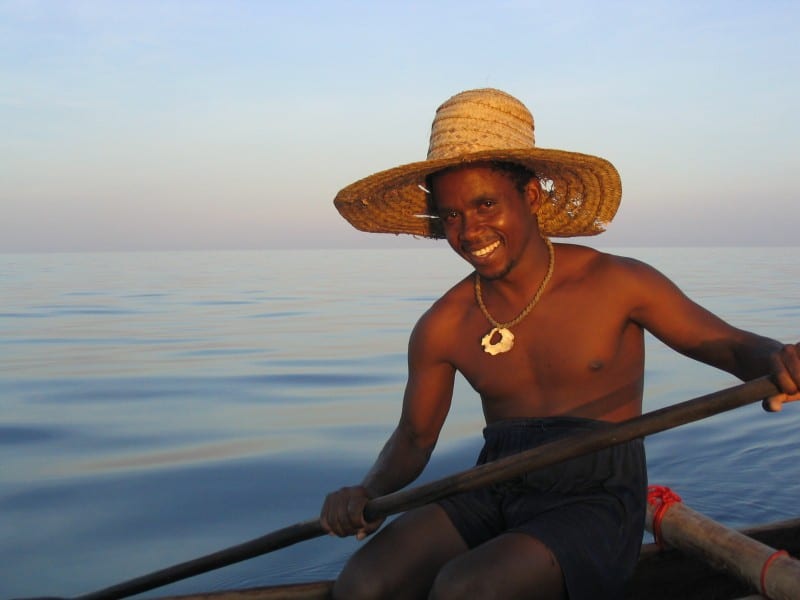
Choose your destination wisely. Some African countries are safer than others, so always check your government’s travel advisory warnings.
Know your own comfort level and be prepared for any dangers you may encounter.
I personally would not go to places that are currently involved in acts of war or aggression or have a high crime rate.
Countries like Somalia have too many cases of kidnapping and robbery for me to see the appeal of going. For me, it is just not worth it.
Try to avoid walking around at night. Unless you are in big cities and with a group of people. I would just stick to the campsites/hostels/hotels, or if you do, don’t be rolling drunk or by yourself.
Know the area you are in. Just in case there are wild animals, you don’t want to be unknowingly walking around in their home at night time (or day for that matter).
Also have the number of the local authorities saved on your phone, so you know who to call in case you need to.
We stayed at St Lucia, one of my favorite South African towns, but it was also a place where hippos freely wandered the streets at night.
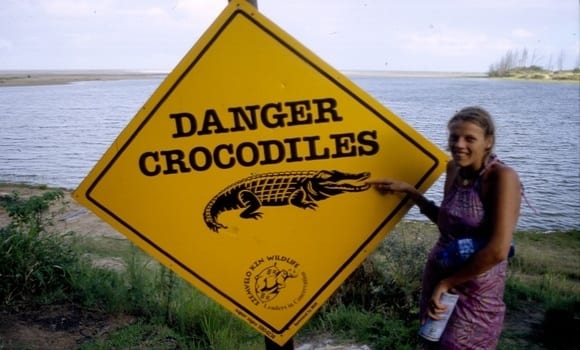
The only place I was really scared was Johannesburg, but that was because I had heard a lot of horror stories of carjacking, mugging, armed robbery, and worse.
Nothing happened to us.
The second time I went there I had my brother, who lived there for awhile, to look out for me and take me to the safe areas.
Make sure you are aware of where it is safe to go and where it is not. If you happen to be in Johannesburg, simply get an Uber everywhere. Don’t walk, even if it’s just 5 minutes down the road.
If you can spend time with local people you know and trust who know the area like this then hang out with them.
It will ease your mind and allow you to see the good side of the destination.
Or if you are that concerned then perhaps join a tour of these certain areas.
3. Driving in Africa Safety Tips
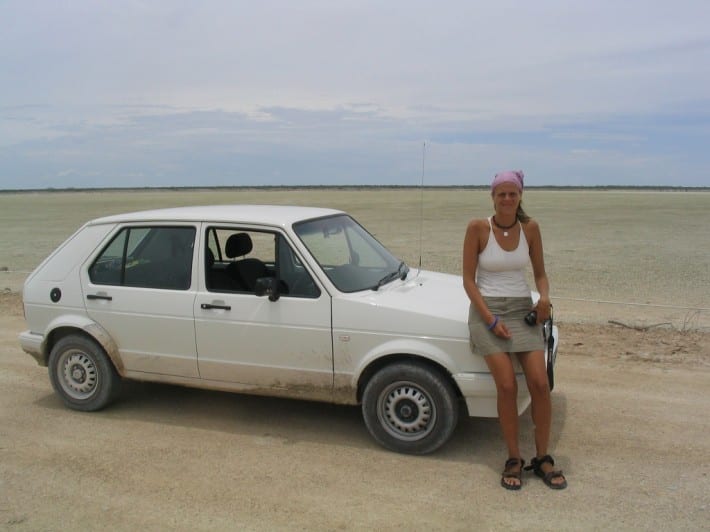
Hiring a car is a fantastic way to see certain parts of Africa, especially the Game Reserves and National Parks. Make sure you understand the road rules and take care. Check Discover Cars for best prices and availability.
If you do plan to self-drive a safari, be sure to check out our safari tips to maximize your experience.
When in the game parks keep your windows rolled up when you get close to the wild animals. Yes, they could jump in there. Only get out of your car at the designated rest areas and still keep your five senses heightened.
Don’t lean out of the car to photograph lions or rhino, as they may come up close to your vehicle.
When driving around Africa, you will have plenty of cars, trucks and other vehicles overtaking at any moment, blind corners or not.
I always honk my horn several times when approaching a blind corner to warn anyone coming opposite to stay on their side of the road until I pass.
Also note that speed cameras are ruthless in South Africa. You might not even know they are there, so be sure to make sure you’re not speeding if you want to avoid a fine.
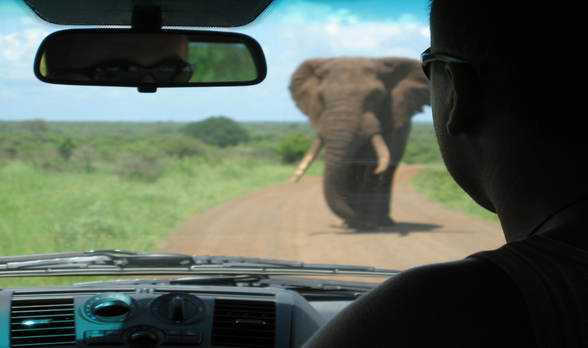
If you come face to face with an elephant and he starts flapping his ears, that is your cue to reverse a bit and give him his space. And if he charges then lets hope you can drive like Michael Schumaker.
If you have to catch public transport i.e mini-vans, pick ups, never sit in the front seat/cabin. It is commonly known as the Death Seat. Take the squashy back options – it is safer.
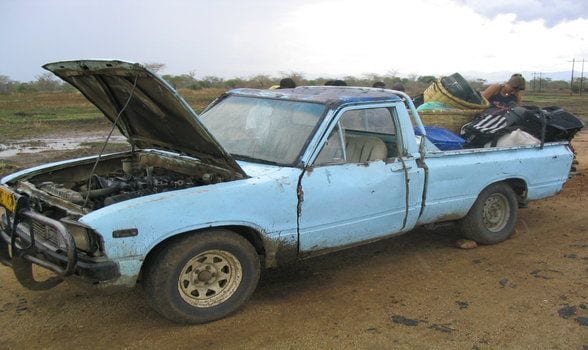
4. Health In Africa Safety Tips
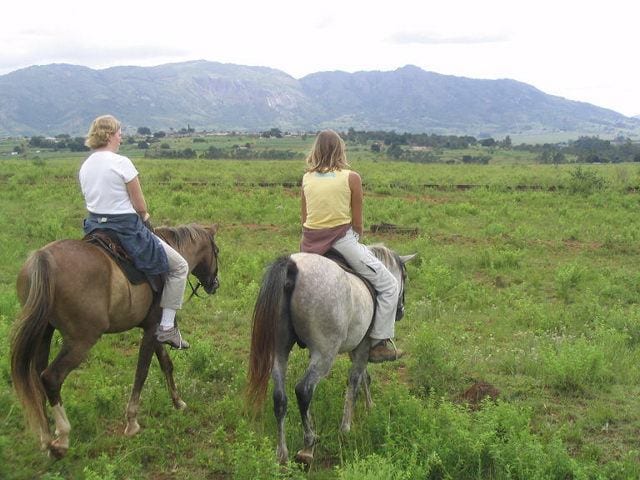
Make sure that you get the recommended vaccinations before you arrive in Africa. You will need Yellow Fever and may not be allowed to enter your own country upon return if you have not had it.
You may also need to get vaccinations for Hepatitis A & B, Typhoid, as well as the normal precautions such as tetanus jabs.
Carry your vaccination booklet with you as you will need a lot of vaccinations and won’t remember when you had it or when you need a booster. You’ll need to show it to prove you have had your yellow fever vaccination as well.
Do you have malaria pills? Probably something you should have. Although they generally just mask the symptoms rather than prevent them.
My brother still got malaria even while taking them and was holed up in a small, dusty cabin on Lake Malawi for three months. He was happy enough, as the World Cup Soccer was on so he could watch all the matches.
Some have ugly side effects so choose wisely. We didn’t have any problems with Doxycycline, although it can make you more sensitive to the sun.
They came in handy for me when I contracted Tick Bite Fever. They are an antibiotic so they helped clear it up.
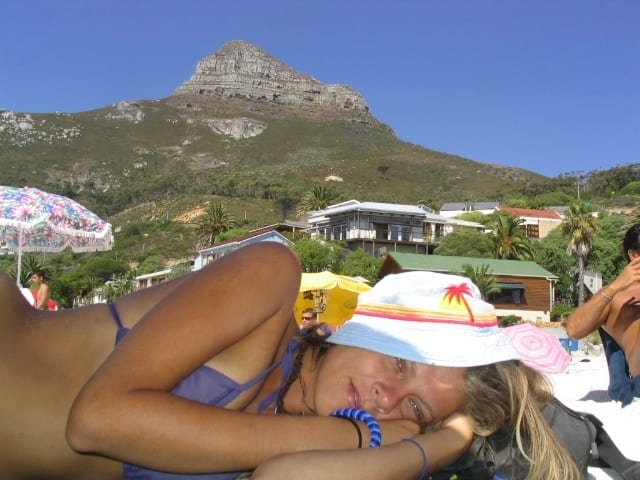
Watch out when swimming in stagnant water (particularly in Malawi) where you can get Bilharzia. Check with the locals they will tell you if it is okay to swim or not.
Don’t go hiking mountains in the heat of a Malawian 40 degree day. You will feel like you are about to die from heat stroke – really stupid move.
We ate plenty of food from local vendors and street food and never got sick. Go for it! Choose places that are well frequented by locals. Make sure the food is piping hot before you tuck in and you should avoid food poisoning disasters.

It’s important to travel to Africa with adequate travel insurance! Check Visitor’s Coverage and World Nomads, and SafetyWing for prices and policies.
Group Tours of Africa
If you’re considering joining a group tour for Africa, consider our long-term partner Globus family of brands. We have a discount in the blue box below.
GLOBUS DISCOUNT JUST FOR YOU!
We’ve secured an exclusive yTravel discount: Save $100 per person on select 2024 Globus and Avalon Waterway Vacations. Use the code: YTRAVEL when booking online at the Globus, Cosmos, and Avalon Waterways websites, by calling Globus and Avalon Waterways directly, or booking with a preferred Travel Advisor. Terms & Conditions.
Final Thoughts
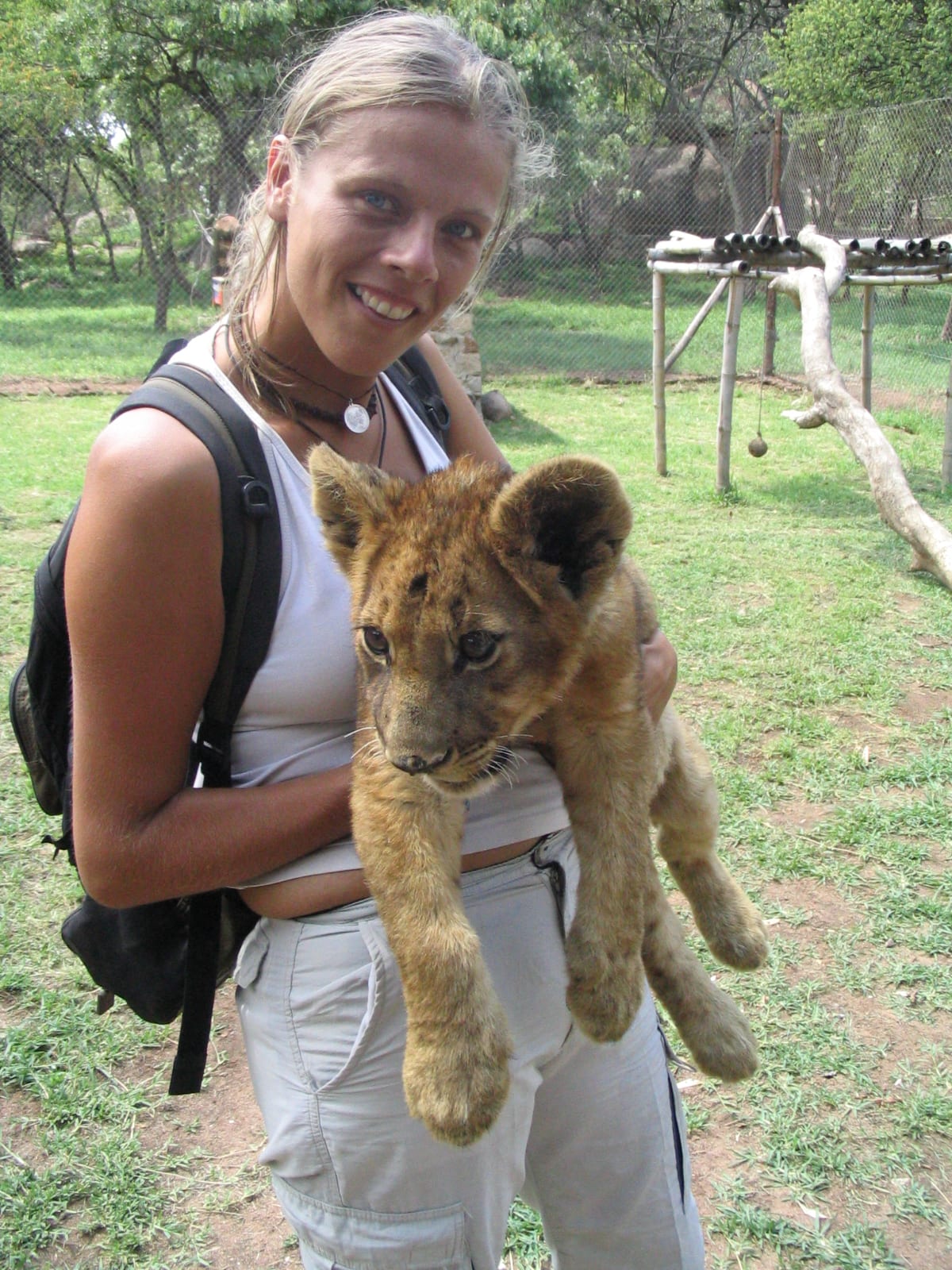
I was a little scared when we decided we were going to travel around East and South Africa independently.
The tours sounded safe and comfortable, but we really wanted more of an authentic experience.
With this came a certain amount of fear. But, my fears were alleviated as soon as we touched ground.
After almost five months of catching local transport, camping, and spending a lot of time with the locals, we had no dangers or horror stories to speak of – only challenging journeys, warm friendships made, and one out of the ordinary case of tick bite fever.

